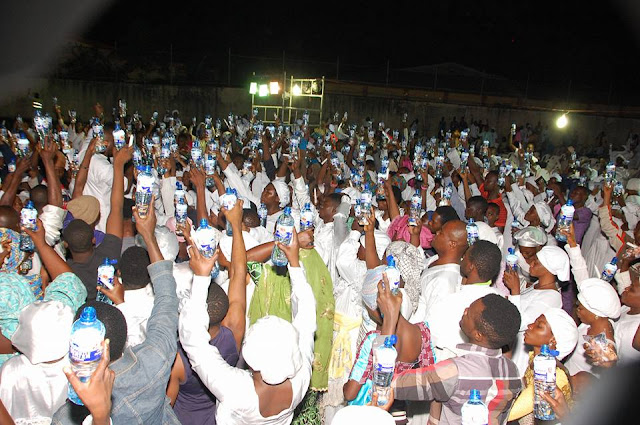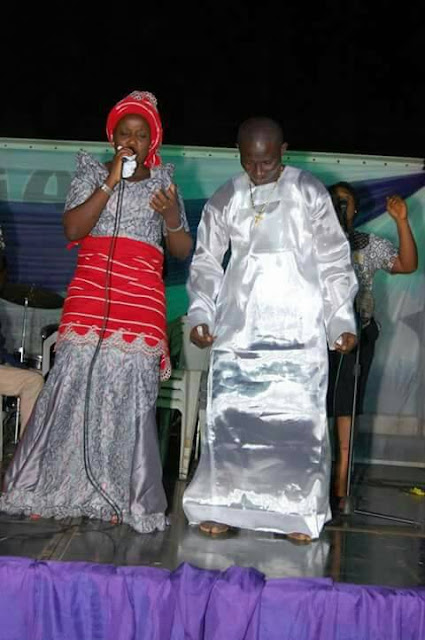Quid Agis? It is not gainsaying
that 99% of the fast-learning masses have made it an habit and hobby to
tongue-lash the government at the slightest breaking of news. Negativity have
become normalcy. Positivity is tagged as abnormality when it comes to
governmental matters. Thanks to the unending evolution of our twinkle-of-an-eye
social media. We have developed a negative behavioural pattern that doesn't see
anything good coming from the offices of our local, state and federal leaders.
Infact, our mindset have been so thwarted nay fine-tuned to bad news.
Many people, unknowingly, have
been enlisted in 24-hour internet witchcraft when they started sending and
posting killer comments on social media networks from the comforts of their
homes, engaging in unrestricted government-maiming. Things are beginning to
look alarmingly threadbare. Are we doing little to hide our frustrations?
 Inasmuch as we enjoy the freedom
of speech and expression, we should be mindful of the suicidal effects of
barbaric cum negative comments targeted at government of the day. It is okay to
give positive criticism and arguments, but totally uncalled for to start
displaying online toutism and incitive chauvinism. Our neighbours now think we
are on the verge of a collapse and watching us plunge into freefall.
Inasmuch as we enjoy the freedom
of speech and expression, we should be mindful of the suicidal effects of
barbaric cum negative comments targeted at government of the day. It is okay to
give positive criticism and arguments, but totally uncalled for to start
displaying online toutism and incitive chauvinism. Our neighbours now think we
are on the verge of a collapse and watching us plunge into freefall.
To an extent, if the news is not
bad, then it is not worth our attention nor comment. if the news is not bad, we
proceed to series of combined grumbles. We begin to smell an inexistent rat. We
begin to create an air of conspiracy between the media and the government. We
begin to chant: "He who pays the piper dictates the tune". Vox
populi!
Be that as it may, I dare to be
(hard) tackled. Even when government is carrying out a project that will, in no
small way, raise soften the standard of living of the common man and improve
our welfare, we hastily begin to predict doom and gloom. We forecast the job to
be dead on arrival. Veto! We complain, curse, swear, condemn, lament, wail,
resent, whinge, kvetch, gripe, whine, beef and grouse .We have allowed
misconception, misinformation and poverty of the mind to becloud our hopes of a
better nation. We have sacrificed prayers on the altar of anti-government
witchcraft. Vivere est vincere!
Year-on-year, we compare our
nation with other super powers of the world. We envy their perceived
perfection. We run to them for refuge. We treat our fatherland as a place of no
return. we see it as a place occupied by vampires, holocausts, zombies, cannibals
and living dead. We keep running from pillar to post, morior invictus. We see
challenges as death rows instead of an opportunity for innovations, promotion
and advancement. More painful is the fact that somebody who is unable to manage
his small home would be the first person to tongue-lash our leaders. It is only
the owner of the head that knows where it aches. Not easy is the head that
wears the crown. Whether we like it or not, rebellion will never set things
right, it will only take things from the frying pan to the fire.
Sentiments apart, in this tempora
heroica, can prayer do all things? What are the kind of messages we consume in
the place of worship? How do we pray to our Creator if we want answers to the
big questions of life (Summum bonum)? How do we ask to receive? How do we seek
to find? How do we knock so that the door will be opened? Would a man kill his
son for not doing well in class as demanded? Will he disown him or will he look
for ways to make him a better person? Will he attack his teacher o will he fix
an appointment with him to discuss ways through which the boy can come out of
his shell? Freed from curse of the comfort zone? We should never forget that
nothing good will ever come easy. There is always a price to pay.
Yes, we all know that government
have its bad days. There is no denying the fact that we have bad eggs at the
helm of affairs. But it is high time we started praying for our nation. There is
no place like home, even if you run to only-God-knows-where for donkey years. Your
root remains your root. It is inerasable. Why can’t we start praying vehemently
for the political parties, chairmen, ministers, governors, senators, vice president,
president and etcetera. It is not a sin to remember these people in prayers,
after praying for yourself and your family because these are group of people
whose decisions will directly or indirectly shape the future. We should pray
now, not post mortem. We should stop treating our leaders as non-grata. One prayer
per diem can save the day.
Start praying without delay!











